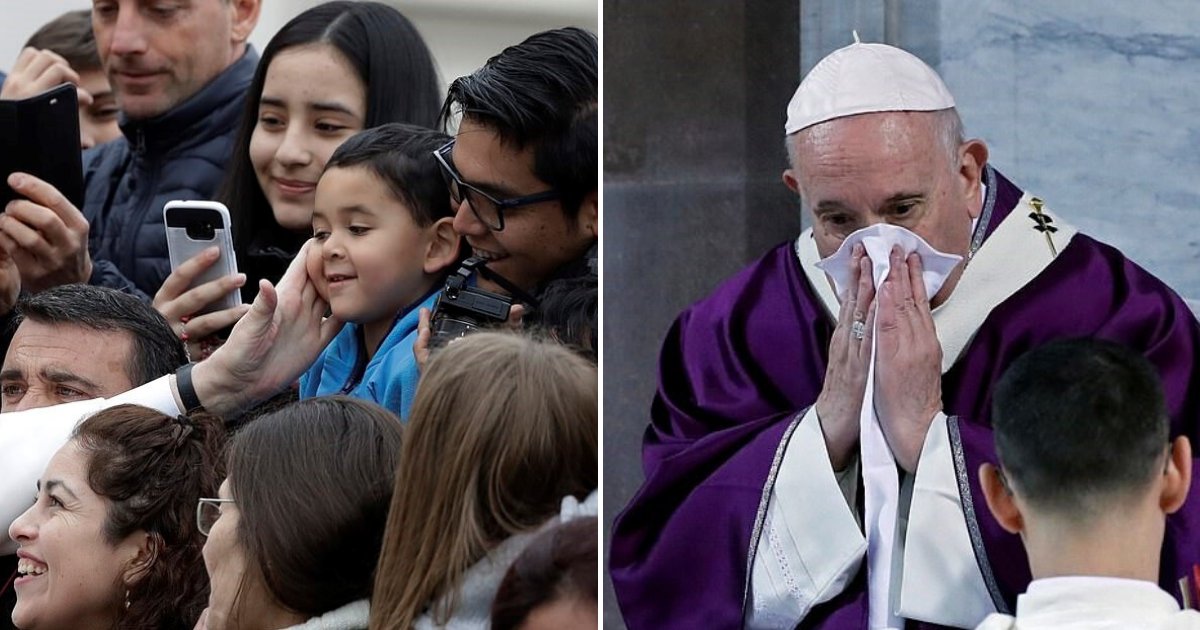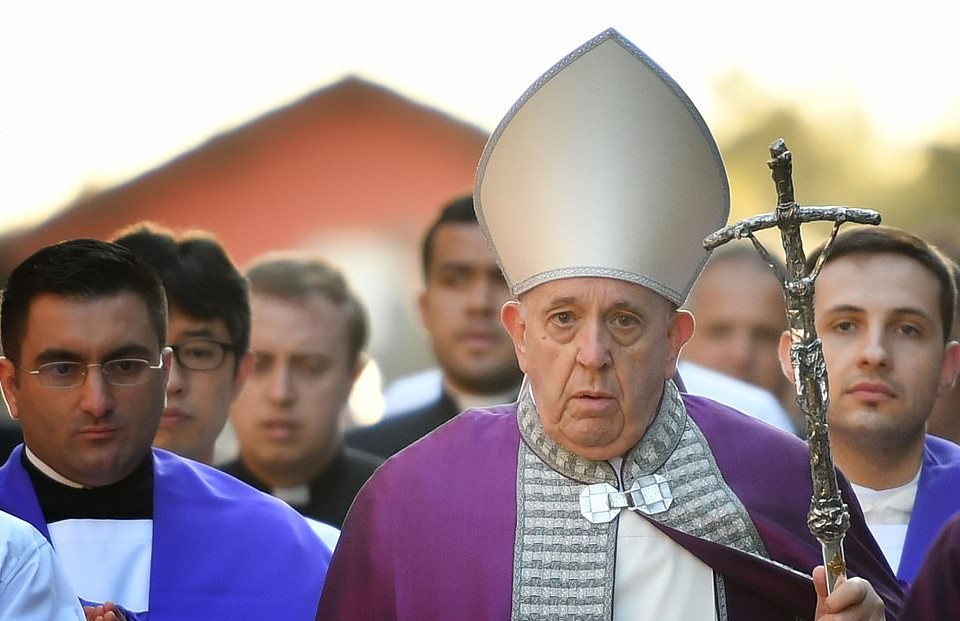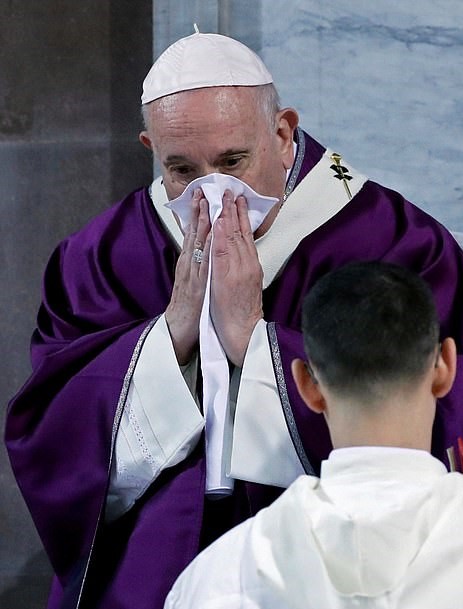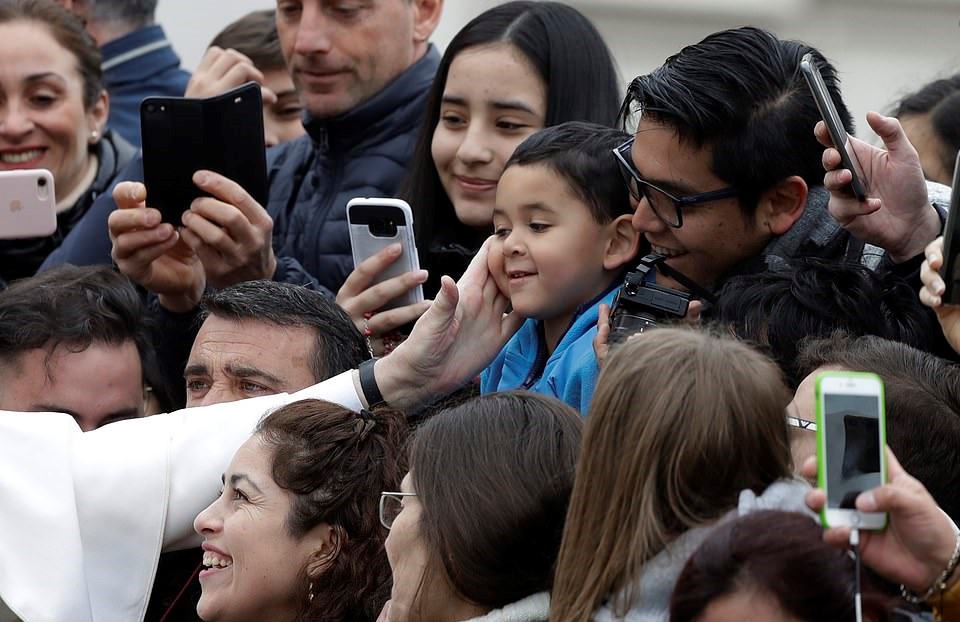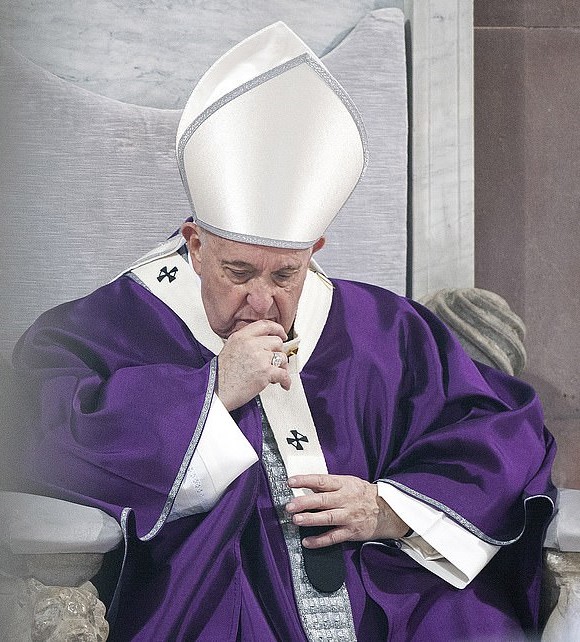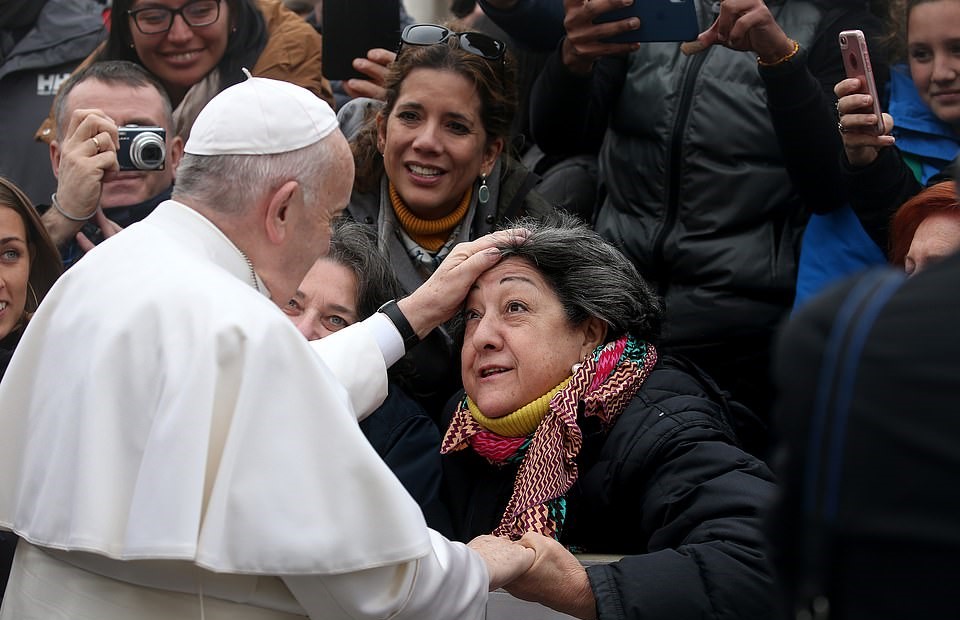The Vatican said that Pope Francis was forced to cancel a Mass in Rome as he suffered a ‘slight illness’ after shaking the hands of coronavirus sufferers.
The 83-year-old had a ‘slight indisposition’ and couldn’t attend the planned mass at the St. John Lateran basilica.
A spokesperson said the pontiff would like to continue but chose to stay within the Vatican instead of going around the city.
While there was no word about the true nature of his condition, Pope Francis was seen blowing his nose and coughing during the Ash Wednesday Mass.
This comes one day after he touched faces and kissed heads as he met with people in St. Peter’s Square. Only a few people were wearing face masks but Francis still shook hands and kissed some of the children.
The pope has had a busy schedule lately, including the Ash Wednesday service in a Roman basilica.
The news follows shortly after a woman who was tested negative for coronavirus on eight occasions has been diagnosed with the killer bug after 17 days of quarantine.
The 56-year-old hotel worker from Sichuan Province, China, was put into isolation in early February after being in touch with a coworker who carried the virus.
While the woman tested negative for coronavirus eight times after being quarantined, she was diagnosed with the killer virus 17 days after being exposed to it according to Sichuan Online.
As the paper reported, the hotel worker was put into isolation for three weeks, throughout which multiple tests came back negative, after it was found that one of her colleagues whom she’d been in touch with was diagnosed with coronavirus.
Previously, the authorities have expressed their fears over the existing 14-day coronavirus quarantine, claiming that the period isn’t long enough after a senior man needed almost a month to develop symptoms.
According to the reports of the local government in the province of Hubei, a 70-year-old man who got infected with the novel coronavirus only showed symptoms 27 days later.
As the government explained, the man visited his infected sister in Shennongjia, Hubei, on January 24. It wasn’t until recently, however, that he began showing symptoms of the infection.
Following this discovery, experts fear that the existing WHO-approved quarantine period might be too short and that people completing the 14-day period could still infect others provided they carry the killer virus.
What are your thoughts on this news? Let us know in the comments and don’t forget to SHARE this post with your family and friends and follow us on Facebook for more news and stories!
Replaced!


